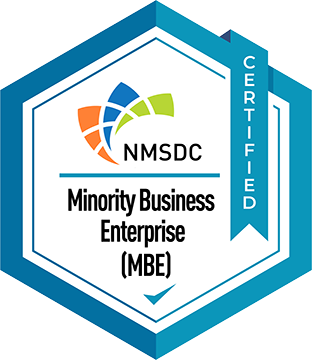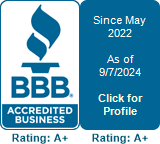As you start in the interpreting industry, you’ll acclimate to so many different aspects of job preparation. They become a routine, an automatic reflex before you begin your assignments. The term “prep session” is somewhat misleading as it doesn’t have to do with physical or mental preparation. However, it’s still a vital part of assignment prep: your last step before beginning the assignment.
In this installment of our “Interpreting Skills” series, we’ll cover information about prep sessions and how to write your own.

What is a pre-session for interpreters?
So let’s talk about Prep Sessions! They’re also called pre-sessions. This is self-explanatory as they happen before the session. It’s a good idea to have a standard “prep session” that you memorize and deliver before each assignment. You can then tailor them to individual clients and patients. The prep session lets both parties know what to expect during the interpreting session.
You should deliver your prep session as part of your introduction, when first meeting the non-English speaker and the client. Your natural inclination is already to say, “hello, I’ll be the interpreter for today.” The prep-session is just an extension of this to help everyone create expectations for the appointment.
Sometimes, it’s the first time they’ve worked with an interpreter. There’s no real way to know this ahead of time. In any case, as standardization is key to professionalism, err on the side of giving more information. This is still true if you’ve worked with the client and non-English speaker before. It’s always a good idea to give a brief reminder of how it works. This includes speaking in the first person, that you’ll interpret everything you hear, etc.
Structuring your Prep Session
When writing out your prep session, you’re going to include the following details.
- A hello
- Your name
- You’re the interpreter, and which agency you’re from
- You’ll be speaking as the non-English speaker and the client, so please speak in the first person
- When you need to refer to yourself, you’ll do so in the third person as “the interpreter”
- Everything said in this assignment will remain confidential
- Note: This isn’t entirely true. Interpreters are sometimes considered mandatory reporters. It’s also important to report abuse or threats of harm to self or others to the client. We’ll discuss this in another series installment. However, the majority of reporting you’d do would be to the client themself anyway. This indicates that you’d never discuss details of a case with a friend, coworker, or spouse, for example. Particularly in medical cases, you’d be violating HIPAA.
- I will interpret everything I hear
- “Please do not ask me questions or for advice. I will interpret them to the client, but I cannot answer or give advice personally. I am only here for the language transfer.”
- Keep in mind that as the interpreter, you’re in a position of great trust. You’re the only person in the immediate area who speaks the same language as the non-English speaker. You’re also in a position of authority as you’ve attended appointments like this before and the non-English speaker likely hasn’t. Non-English speakers are thus naturally tempted to use you as a confidante. They may ask you to give advice. We’ll discuss how to handle this situation in another series installment.
- Please pause after short phrases so I can interpret, but otherwise feel free to keep your normal tempo.
- It would be helpful if you could say numbers and quantities “fully.” For example, March 15 instead of 3/15, and one thousand three hundred instead of thirteen hundred.
This is a good structure for writing a basic prep session. Let’s talk about tailoring it to different appointments.
Different Assignments: Different Preps?
For medical and school appointments, the basic prep session we outlined above works quite well. It covers everything it needs to cover and emphasizes confidentiality–which, naturally, is a big part of medical assignments. However, sometimes you’ll find that you’re interpreting for parents AND children. For example, you might be assigned to an appointment for a child where the parents are the primary non-English speakers. Thus, we suggest creating a simpler version of the prep session if the child is old enough to understand. You can include:
- your name
- that you’re the interpreter
- that you’re there to help the parents understand what the doctor’s saying
For legal assignments, be sure to emphasize that you need dates, numbers, and quantities said out. For example, “March 15” is better than “3/15,” and “one thousand three hundred” is preferable to “thirteen hundred.” Place extra emphasis on the fact that you’ll interpret absolutely everything you hear. Legal appointments require a higher degree of formality than other assignment types. The prep session is also the appropriate time to ask the lawyer/client about objections, and how you should handle those.
For business assignments, the basic prep session also works well. Business assignments are a little different–they’re between the formality levels of medical and legal assignments. Some businesses prefer extra emphasis on confidentiality–it depends on the topic of the meeting. It’s always good to mention, regardless.
We highly suggest creating a couple different versions of a prep session that you can use. Having them prepared before you enter the assignment makes it a breeze to deliver them confidently and effectively. Take a half hour and write them out! Your career will thank you.
Global Arena’s 16-hour Interpreter Training Program
Looking for a place to start, meet like-minded individuals, and build your interpreting network through discussion and activities? Global Arena’s 16-hour interpreting program covers medical, school, business, and legal interpreting. We offer a foundation for new interpreters just starting in the industry. Experienced interpreters also benefit from brushing up on their skills and industry knowledge. The course takes place over zoom, on four consecutive days, from 8:30 am- 12:30 PM EST. Participants receive a welcome packet with reference materials, including glossaries and activity pages. You’ll also receive a certificate of completion upon passing exam score: useful for interpreting applications and resume-building. Visit our Interpreting program page to sign up or learn more:







